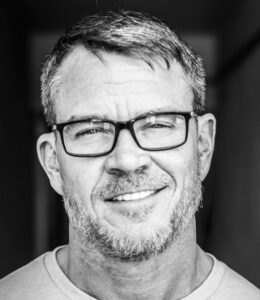Among the phrases dominating the HR lexicon in 2023, “employee experience” will certainly be one of the most used—as employers jockey to create an attractive environment for today’s highly transient workers. While some may jump on the EX bandwagon by offering innovative new perks or expanding flexibility, leading-edge companies have long recognized the value of prioritizing—yet the complexity of achieving—a fulfilling EX.
One company leading that pack is Patagonia—the outdoor retailer famous for its “Let my people go surfing” mentality that embraced flexibility and employee autonomy long before being forced to by the COVID-19 pandemic. It was ahead of the curve on a number of dimensions now incorporated into modern understandings of EX—it’s offered on-site childcare for 40 years and covers healthcare premiums for all employees—says Dean Carter, CHRO of Patagonia from 2015 until last year; he became chief people officer at Guild Education last month.
The offerings that made Patagonia a model of successful EX are all rooted in one belief: You have to live your purpose.
“If we hire people who love to surf, we had better let them do that,” Carter says. “If we hire people who love to climb or ski, we had better give them the ability to do that. If we hire people who are activists, we had better bail them out of jail. If we’re doing all that, then we’re doing exactly what our purpose is asking us to do.”
That’s not to say Patagonia hasn’t evolved how it connects purpose and EX over the years, Carter notes. In particular, the murder of George Floyd in 2020 had a resounding impact on the company’s direction, and ultimately its internal and external people practices.
“We were founded on the idea of saving the planet but, after [Floyd’s death], we started asking the question—which we should have been asking before—‘Who are we saving this planet for?’ ” Carter says. “And that was a tough answer.”
Leaders used that opportunity to recognize the privilege that often exists among its target consumers—surfers and climbers, for instance. To stay true to its mission, it reconfigured its business model: Instead of having a line of business devoted to selling boards and surfing gear, for instance, it becomes a broader unit that works to combat everything from pollution to the effects of ocean rise.
“If you’re going to be about saving the ocean, you have to focus on the communities most impacted. Thinking like that totally changed the business model,” Carter says.
The same level of empathy that drove that redesign also fueled the evolution of Patagonia’s EX.
A few years back, the organization started a new line of business devoted to regenerative agriculture—intentionality about what you’re putting into and taking out of the soil—which prompted Carter and his team to apply that same model to its HR practices.

Traditional performance management, for instance—like annual reviews or engagement surveys—usually focuses on what employees are producing for the company, with little attention to what the company is pouring into their personal lives. So, when Patagonia instituted a four-day workweek, it rolled out pre- and post-implementation surveys asking how the new model impacted employees’ relationships with their spouses and their children, their ability to take care of their health, to buy and make nutritious food.
“Every indicator went up as a result [of the change],” Carter says. “And that made me realize that the fundamental question on any survey relating to employee experience should just be, ‘Are we putting more into your life than we’re taking out?’ If you don’t ask any other question, that’s the one that matters the most.”
Similarly, Patagonia sought to bring a “human-centered” approach to the questions it asked of employees as it strategized for bringing workers back on site after the height of COVID-19. Instead of asking them when they were available to come back into the office, for instance, leaders focused instead on how employees were changed by the pandemic.
“’Everyone’s different from two years ago; so, let’s talk about that,’” he says of their approach. “We wanted to know what their challenges were to help us return with a ton of empathy. People were returning different and we needed to have those conversations around who they were now and what they were expecting.”
Carter sees those expectations as threefold. First, today’s employees are having the same realization Patagonia had years ago—it’s all about purpose—while also craving a path and an opportunity to prosper.
That’s why Carter says he’s in an ideal place in his new role at Guild, which offers education and upskilling opportunities, including to Fortune 1000 companies like Chipotle and Macy’s. Carter is managing people practices for the 800-person Guild workforce as well as serving as an HR advisor to Guild’s employer partners.
The needs of today’s workforce are particularly resonant with Guild’s mission, he says. The organization is focused on helping workers of all backgrounds and experiences recognize their potential through education, along with creating actionable steps forward for their careers, particularly for marginalized communities—Black participants were 88% more likely to receive promotions than those who had not enrolled in the program, along with 71% of Hispanic participants.
“If I get to help people of all communities find their path, and be a model for other companies to follow in our lead, then in seven years from now—just like in my seven years at Patagonia,” Carter says, “I’ll be a very happy guy.”

